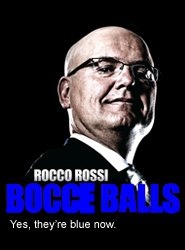“Property rights” in the Constitution
…that’s what Tim Hudak’s PCs want. What does it mean for you?
- Higher drug prices, in perpetuity, as Big Pharma will win eternal patent protections
- The loss of anti-pollution rules
- The end of new parks and the potential elimination of existing parks
- Elimination of zoning rules designed to prevent neighbourhoods from being ruined – noise bylaws, giant homes, etc.
- Friction with aboriginal peoples, with land claims being overturned and challenged
- Discrimination against women in divorce settlements
- The challenge of labour laws, and potential end to collective bargaining
- The loss of shorelines, and commercialization of public lands
It’s crazy. And it raises the key question: where does Tim Hudak stand? Is the No Plan Man© now, fully, a hostage of a cabal of lawless rural extremists?
Hillier, the real PC leader, in handcuffs at an OLA protest.



